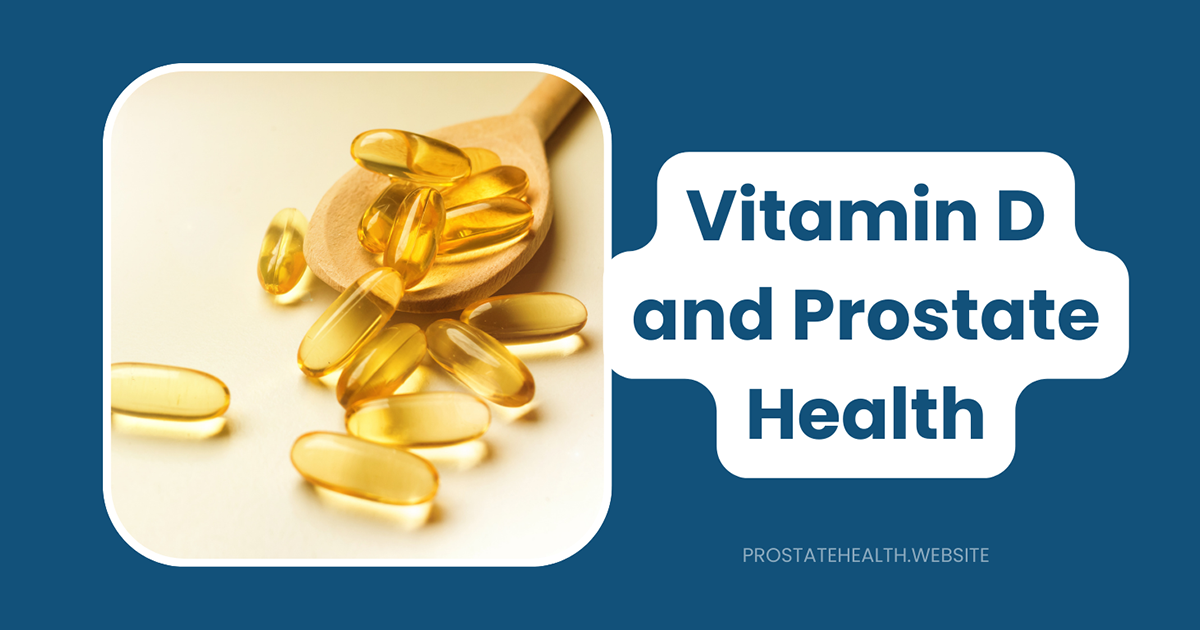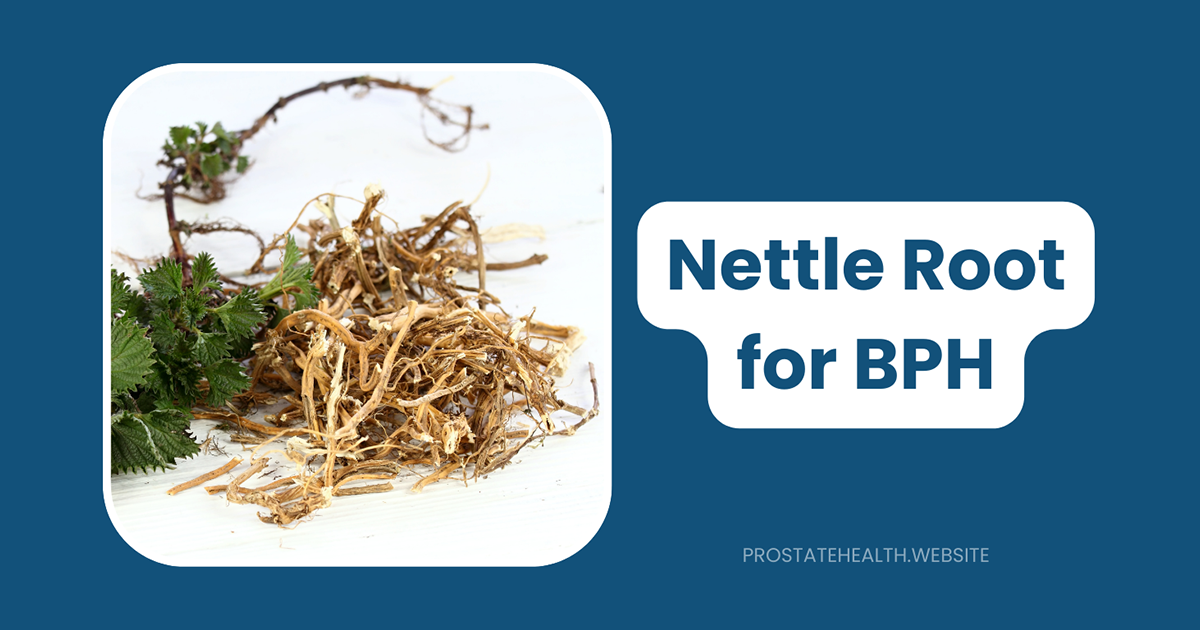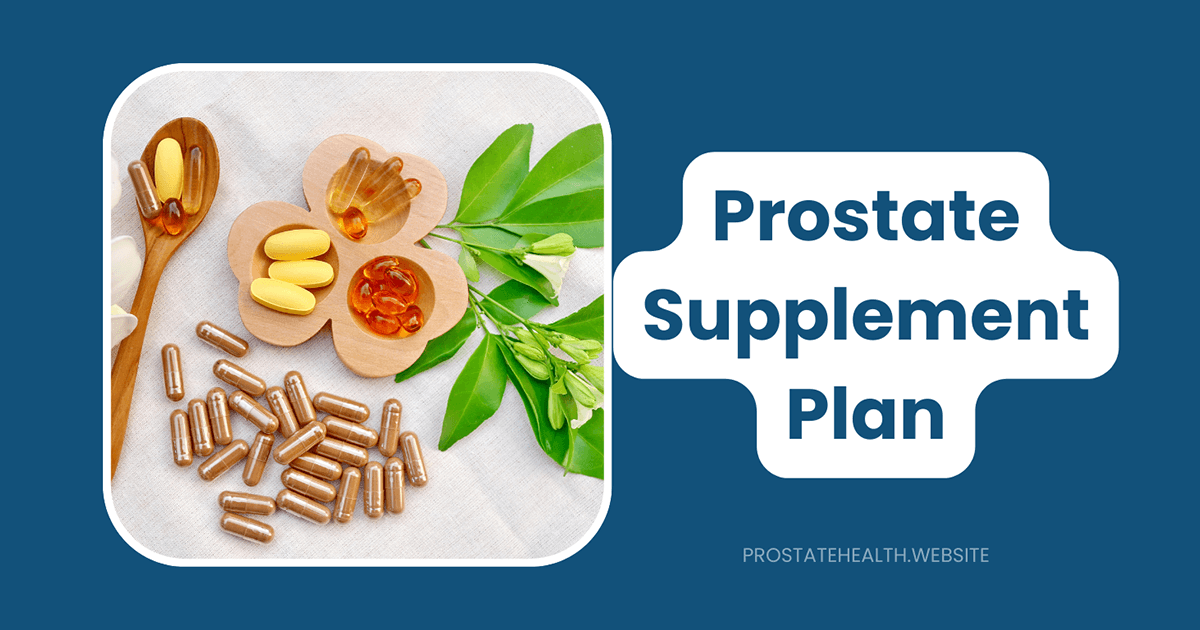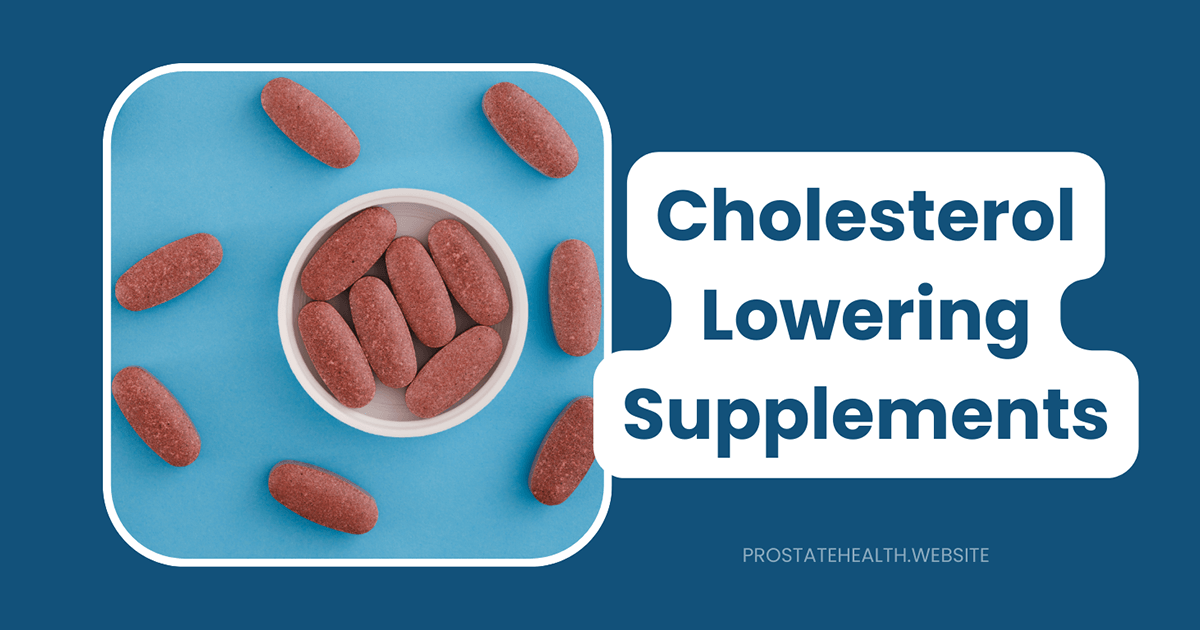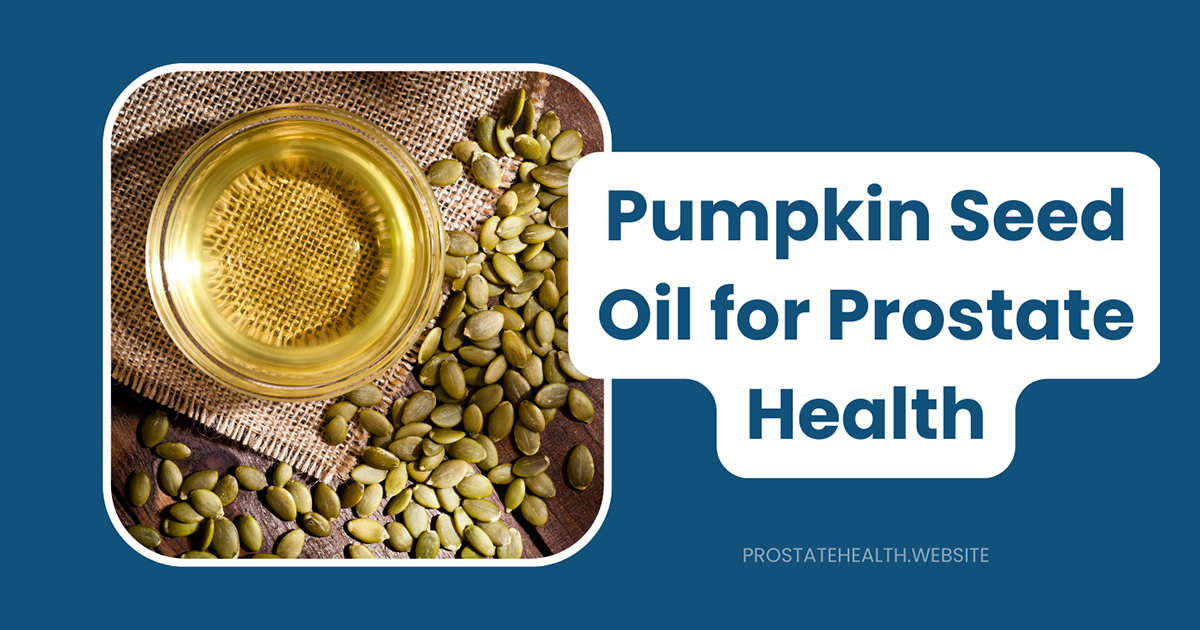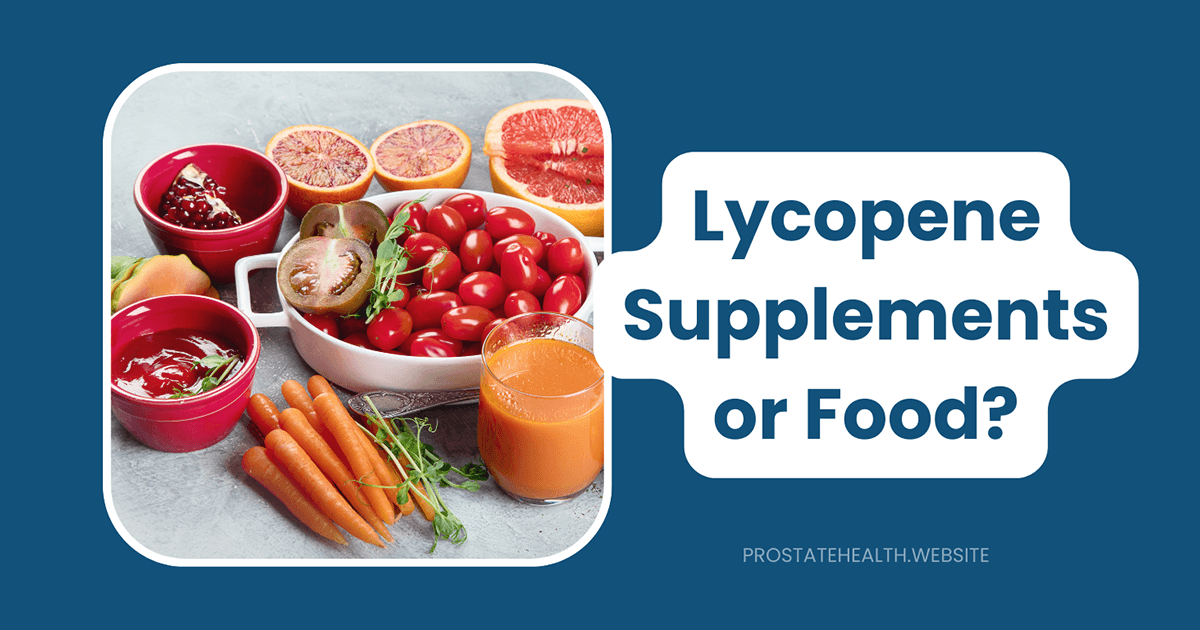Zinc and Prostate Health: Finding the Right Balance
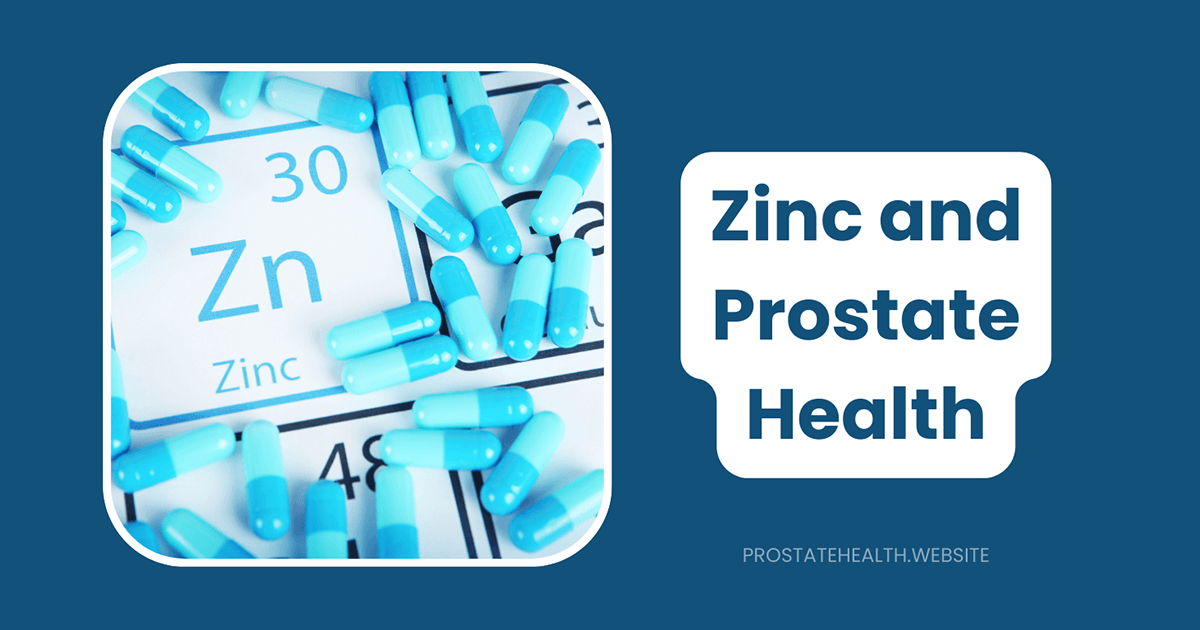
When I first began researching prostate health after my own diagnosis of benign prostatic hyperplasia (BPH) at age 54, I was surprised to discover a fascinating fact: the prostate gland contains the highest concentration of zinc of any soft tissue in the male body. This wasn’t just a biological curiosity—it pointed to something fundamental about how this essential mineral might influence prostate function, both in health and disease.
As I dug deeper into the scientific literature, I found that zinc’s relationship with prostate health is complex and sometimes contradictory. Too little zinc may increase risk for prostate problems, but too much might also be problematic. Finding the right balance seems to be key, yet many men—and even some healthcare providers—aren’t fully aware of zinc’s critical role in prostate health.
In this comprehensive guide, I’ll share what modern research tells us about zinc and the prostate—from its unique biological functions and optimal levels to practical recommendations for diet, supplementation, and lifestyle. My goal is to provide you with evidence-based information that helps you make informed decisions about zinc as part of your prostate health strategy.
Understanding the Prostate’s Unique Relationship with Zinc
Before diving into specific health implications, it’s important to understand why zinc is so concentrated in the prostate and what role it plays in normal prostate function.
The Zinc-Rich Prostate: A Biological Marvel
The prostate gland contains approximately 5-10 times more zinc than any other soft tissue in the body. This isn’t a random quirk of biology—it reflects zinc’s essential role in prostate function:
- Normal prostate tissue contains about 3,000-4,500 nmol/g of zinc
- Prostatic fluid contains an astounding 8,000-10,000 nmol/g of zinc
- The peripheral zone of the prostate, where most cancers develop, has the highest zinc concentration (about 114 μg/g in men under 35)
This extraordinary zinc accumulation is facilitated by specialized zinc transporters, particularly ZIP1 (also known as SLC39A1), which actively pump zinc into prostate cells.
Zinc’s Critical Functions in the Prostate
Zinc isn’t just stored in the prostate—it performs several vital functions:
1. Citrate Production
One of the prostate’s main jobs is to produce citrate, a component of seminal fluid that provides energy for sperm and helps maintain proper pH. Zinc plays a crucial role in this process:
- Zinc inhibits an enzyme called mitochondrial aconitase (m-aconitase)
- This inhibition prevents citrate from being oxidized in the Krebs cycle
- As a result, citrate accumulates in prostate cells and is secreted into prostatic fluid
This metabolic pathway is unique to the prostate and represents a remarkable adaptation that depends entirely on zinc.
2. Antimicrobial Protection
The high zinc concentration in prostatic fluid serves another important purpose:
- Zinc has natural antimicrobial properties
- It helps protect against urinary tract infections
- It may contribute to the overall health of the reproductive system
3. Cell Growth Regulation
Zinc helps regulate prostate cell growth and division:
- It influences various signaling pathways involved in cell proliferation
- It can induce apoptosis (programmed cell death) in abnormal cells
- It helps maintain the balance between cell growth and cell death
4. Hormone Metabolism
Zinc affects how the prostate responds to hormones:
- It may inhibit 5-alpha-reductase, the enzyme that converts testosterone to dihydrotestosterone (DHT)
- DHT is a potent androgen that contributes to prostate enlargement
- Zinc helps maintain proper hormonal balance in prostate tissue
Dr. Leslie Costello, a pioneering researcher in prostate zinc metabolism at the University of Maryland, explains: “The prostate’s unique zinc-accumulating capability is not just a curiosity—it’s fundamental to the gland’s normal function. When this capability is lost, it can have serious consequences for prostate health.”
Zinc Deficiency and Prostate Health: The Risks of Too Little
Given zinc’s important roles in the prostate, it’s not surprising that zinc deficiency has been linked to various prostate conditions.
Zinc Status in Prostate Diseases
Research has consistently shown altered zinc levels in prostate diseases:
Prostate Cancer
Perhaps the most striking finding is that prostate cancer tissue contains dramatically less zinc than normal prostate tissue:
- Malignant prostate tissue shows a 60-80% reduction in zinc concentration
- This decrease occurs early in the development of malignancy
- The loss of zinc appears to be due to downregulation of the ZIP1 transporter
This consistent finding has led researchers to propose that the loss of zinc accumulation capability is a key step in the development of prostate cancer.
Benign Prostatic Hyperplasia (BPH)
The relationship between zinc and BPH is more complex:
- Some studies show decreased zinc in BPH tissue compared to normal prostate
- Others show normal or even elevated zinc levels
- Urinary zinc excretion is often increased in men with BPH
These mixed findings suggest that zinc metabolism is altered in BPH, but the exact nature of this alteration may vary depending on the stage and severity of the condition.
Prostatitis
Chronic prostatitis has also been associated with altered zinc levels:
- Inflammatory processes may affect zinc metabolism in the prostate
- Some studies suggest that zinc supplementation might help alleviate symptoms
- However, the evidence is not as strong as for other conditions
Mechanisms Linking Zinc Deficiency to Prostate Disease
Several mechanisms may explain how zinc deficiency contributes to prostate problems:
1. Metabolic Transformation
When prostate cells lose their ability to accumulate zinc:
- The inhibition of m-aconitase is removed
- Citrate begins to be oxidized in the Krebs cycle
- This provides more energy for cell growth and proliferation
- The cells transform from “citrate-producing” to “citrate-oxidizing”
This metabolic shift is considered a hallmark of prostate cancer and may contribute to its development.
2. Loss of Apoptotic Control
Zinc normally helps eliminate abnormal cells through apoptosis:
- High zinc levels can trigger apoptosis in prostate cancer cells
- When zinc levels fall, this protective mechanism is lost
- Abnormal cells may survive and proliferate
3. Increased Oxidative Stress
Zinc functions as an antioxidant in the body:
- It protects cells from oxidative damage
- It’s a component of superoxide dismutase, an important antioxidant enzyme
- Zinc deficiency may increase oxidative stress in prostate tissue
4. Altered Inflammatory Response
Zinc plays a role in regulating inflammation:
- Zinc deficiency can promote chronic inflammation
- Chronic inflammation is a risk factor for both BPH and prostate cancer
- Proper zinc levels help maintain a balanced inflammatory response
Risk Factors for Zinc Deficiency
Several factors can increase the risk of zinc deficiency, particularly in older men:
- Age-related changes: Absorption of zinc decreases with age
- Dietary factors: Low intake of zinc-rich foods or high intake of foods that inhibit zinc absorption
- Medications: Certain drugs can reduce zinc absorption or increase excretion
- Health conditions: Digestive disorders, diabetes, and kidney disease can affect zinc status
- Alcohol consumption: Excessive alcohol intake can deplete zinc
Dr. Michael Hambidge, a renowned zinc researcher, notes: “Zinc deficiency is more common than many people realize, especially in older adults. And given the prostate’s high zinc requirement, it may be particularly vulnerable to the effects of even mild zinc deficiency.”
Zinc Excess and Prostate Health: The Risks of Too Much
While zinc deficiency is a concern, excessive zinc intake may also pose risks for prostate health.
Evidence Linking High Zinc Intake to Prostate Problems
Several studies have raised concerns about high-dose zinc supplementation:
The Health Professionals Follow-up Study
This large prospective study followed nearly 47,000 men for 14 years:
- Men taking more than 100 mg/day of supplemental zinc had a 2.29-fold higher risk of advanced prostate cancer
- Those who took supplements for 10 or more years had a 2.37-fold higher risk
- No increased risk was observed at lower doses
The 2023 Follow-up Analysis
A more recent analysis of this cohort with extended follow-up found:
- Zinc supplement use of more than 75 mg/day was associated with a 1.76-fold higher risk for lethal prostate cancer
- Long-term use (15+ years) was associated with a 1.91-fold higher risk
- No association was found between zinc supplements and overall or localized prostate cancer
These findings suggest that while moderate zinc intake is safe, very high doses taken for long periods might increase the risk of aggressive prostate cancer.
Potential Mechanisms of Harm
Several mechanisms might explain how excessive zinc could potentially harm prostate health:
1. Hormonal Effects
High zinc levels might influence hormone metabolism:
- Some research suggests that very high zinc intake could increase levels of insulin-like growth factor 1 (IGF-1)
- Elevated IGF-1 has been linked to increased prostate cancer risk
- High zinc might also affect testosterone metabolism in complex ways
2. Immune Dysfunction
Extremely high zinc intake (over 150 mg/day) can impair immune function:
- This could potentially reduce immune surveillance against cancer cells
- It might also affect inflammatory processes in the prostate
3. Interference with Other Nutrients
Excessive zinc can interfere with the absorption and utilization of other minerals:
- High zinc intake can reduce copper absorption
- It may also affect iron metabolism
- These imbalances could have indirect effects on prostate health
4. Cellular Toxicity
At very high concentrations, zinc can become toxic to cells:
- It may induce oxidative stress
- It can disrupt normal cellular functions
- These effects could potentially damage prostate tissue
Dr. Edward Giovannucci, professor at Harvard T.H. Chan School of Public Health and lead researcher on the Health Professionals Follow-up Study, cautions: “Our findings suggest that men should be aware of the potential risks of high-dose zinc supplementation, particularly when taken for long periods. Moderation appears to be key.”
Finding the Optimal Zinc Balance for Prostate Health
Given the risks of both deficiency and excess, what’s the optimal approach to zinc for prostate health?
Recommended Zinc Intake
Official recommendations provide a starting point:
- Recommended Dietary Allowance (RDA) for adult men: 11 mg/day
- Upper Limit (UL) for zinc from all sources: 40 mg/day
For prostate health specifically, research suggests:
- Maintaining adequate zinc status is important for prostate function
- Intake within the RDA range (11-15 mg/day) appears to be safe and beneficial
- Supplementation above the RDA but below the UL (e.g., 15-30 mg/day) may be appropriate for some men, particularly those at risk for deficiency
- Doses above 40 mg/day should generally be avoided unless prescribed by a healthcare provider for specific medical conditions
Dietary Sources of Zinc
The best approach for most men is to obtain zinc primarily from food sources:
Top Food Sources of Zinc
| Food | Serving Size | Zinc Content (mg) | % of RDA (11 mg) |
| Oysters | 3 oz (85g) | 32 | 291% |
| Beef chuck roast | 3 oz (85g) | 7 | 64% |
| Crab | 3 oz (85g) | 6.5 | 59% |
| Pork chop | 3 oz (85g) | 2.9 | 26% |
| Chicken (dark meat) | 3 oz (85g) | 2.4 | 22% |
| Pumpkin seeds | 1 oz (28g) | 2.2 | 20% |
| Yogurt | 8 oz (227g) | 1.7 | 15% |
| Cashews | 1 oz (28g) | 1.6 | 15% |
| Chickpeas | 1/2 cup | 1.3 | 12% |
| Swiss cheese | 1 oz (28g) | 1.2 | 11% |
| Oatmeal | 1 cup | 1.1 | 10% |
Factors Affecting Zinc Absorption
The bioavailability of zinc from food varies considerably:
- Animal sources generally provide more bioavailable zinc than plant sources
- Phytates in whole grains, legumes, and nuts can bind to zinc and reduce absorption
- Protein enhances zinc absorption, so high-protein foods often provide more usable zinc
- Cooking methods can affect zinc content and bioavailability
To maximize zinc absorption from plant foods:
- Soak, sprout, or ferment grains and legumes to reduce phytate content
- Combine plant sources of zinc with small amounts of animal protein
- Include vitamin C-rich foods in meals containing plant sources of zinc
Zinc Supplementation: When and How
While food should be the primary source of zinc, supplementation may be appropriate in certain situations:
Who Might Benefit from Zinc Supplements
- Men with documented zinc deficiency
- Older adults with poor dietary intake or absorption issues
- Those with conditions that increase zinc requirements or losses
- Vegetarians and vegans who consume high amounts of phytate-rich foods
- Men taking medications that affect zinc status
Types of Zinc Supplements
Not all zinc supplements are created equal:
- Zinc gluconate: Well-absorbed and generally well-tolerated
- Zinc citrate: Good bioavailability and often used in lozenges
- Zinc picolinate: May have enhanced absorption
- Zinc acetate: Commonly used in cold remedies
- Zinc oxide: Poorly absorbed and not recommended for correcting deficiency
For prostate health, supplements that provide zinc bound to amino acids (like zinc glycinate) or organic acids (like zinc citrate) may offer better bioavailability than inorganic forms.
Timing and Administration
To maximize absorption and minimize side effects:
- Take zinc supplements with food to reduce stomach irritation
- Avoid taking zinc at the same time as calcium supplements or iron supplements
- Space zinc at least 2 hours apart from medications that might interact with it
- Consider taking zinc in the evening, as some research suggests better absorption at this time
Monitoring Zinc Status
For men concerned about their zinc status:
- Dietary assessment: Review your typical zinc intake from foods and supplements
- Symptom evaluation: Be aware of potential signs of deficiency or excess
- Laboratory testing: Serum zinc levels can be measured, though they don’t always reflect tissue levels
- Regular prostate check-ups: Monitor prostate health through appropriate screenings
Dr. Jonathan Wright, a pioneer in nutritional medicine, suggests: “For men concerned about prostate health, I recommend periodic assessment of zinc status, especially as they age. This might include not just serum zinc levels, but also a careful dietary history and evaluation of risk factors for deficiency.”
Special Considerations for Different Prostate Conditions
The optimal approach to zinc may vary depending on specific prostate conditions.
Benign Prostatic Hyperplasia (BPH)
For men with BPH:
- Maintaining adequate zinc status may help support normal prostate function
- Some studies suggest that zinc supplementation might help reduce prostate size and improve symptoms
- A typical approach might include ensuring zinc intake of 15-30 mg/day from diet and supplements combined
- Zinc should be considered as part of a comprehensive approach that may include other nutrients and herbs like saw palmetto, beta-sitosterol, and nettle root
Prostatitis
For men with prostatitis:
- Zinc’s anti-inflammatory and immune-supporting properties may be beneficial
- Some clinical studies suggest that zinc supplementation might help reduce symptoms
- Typical protocols involve 30-60 mg/day for acute cases, reducing to 15-30 mg/day for maintenance
- Zinc should be used alongside appropriate medical treatment, not as a replacement
Prostate Cancer
For men concerned about prostate cancer risk or those with prostate cancer:
- Maintaining zinc within the normal range (not too low or too high) appears prudent
- Very high-dose supplementation (>75 mg/day) should be avoided
- Men with prostate cancer should discuss zinc supplementation with their oncologist
- Some research suggests that moderate zinc intake might help support conventional treatments
Dr. Aaron Katz, Chairman of Urology at NYU Winthrop Hospital, notes: “The relationship between zinc and prostate cancer is complex. While we know that prostate cancer cells have lower zinc levels, simply taking high doses of zinc supplements isn’t the answer. A balanced approach, focused on maintaining optimal zinc status through diet and moderate supplementation if needed, makes the most sense based on current evidence.”
Practical Recommendations: A Balanced Approach to Zinc
Based on the current evidence, here are practical recommendations for optimizing zinc status for prostate health:
For Most Men (Prevention)
- Focus on food first: Aim to get 11-15 mg of zinc daily from a varied diet
- Include zinc-rich foods regularly: Oysters, meat, poultry, seafood, pumpkin seeds, nuts, and legumes
- Consider a multivitamin containing zinc (typically 10-15 mg) if your diet may be lacking
- Avoid high-dose supplements (>40 mg/day) unless prescribed by a healthcare provider
- Be aware of factors that might affect your zinc status, such as age, medications, and dietary patterns
For Men with Prostate Concerns
- Discuss zinc status with your healthcare provider
- Consider testing if deficiency is suspected
- Optimize dietary intake of zinc through food sources
- Supplementation in the range of 15-30 mg/day may be appropriate if recommended by your healthcare provider
- Monitor your response to any supplementation regimen
- Integrate zinc into a comprehensive approach to prostate health that includes other nutrients, herbs, diet, and lifestyle factors
For Men Taking Zinc Supplements
- Choose high-quality supplements from reputable manufacturers
- Select forms with good bioavailability (zinc citrate, zinc glycinate, zinc gluconate)
- Take with food to minimize digestive discomfort
- Avoid megadoses (>40 mg/day) unless medically supervised
- Cycle supplementation if taking higher doses (e.g., 1 month on, 1 week off)
- Be aware of potential interactions with medications and other supplements
Beyond Zinc: A Comprehensive Approach to Prostate Health
While zinc is important for prostate health, it’s most effective as part of a comprehensive approach:
Dietary Factors
Several dietary patterns and specific foods may support prostate health:
- Mediterranean diet: Rich in fruits, vegetables, olive oil, and fish
- Tomatoes and tomato products: Contain lycopene, which may benefit prostate health
- Cruciferous vegetables: Broccoli, cauliflower, and Brussels sprouts contain compounds that may support prostate health
- Green tea: Contains catechins with potential benefits for the prostate
- Omega-3 fatty acids: Found in fatty fish, flaxseeds, and walnuts
Lifestyle Modifications
Several lifestyle factors can significantly impact prostate health:
- Regular exercise: May reduce BPH symptoms and improve overall prostate health
- Maintaining healthy weight: Obesity is associated with increased prostate problems
- Stress management: Chronic stress may worsen urinary symptoms
- Adequate hydration: Important for overall urinary health
- Limiting alcohol and caffeine: Both can irritate the bladder and worsen symptoms
Other Supportive Nutrients and Herbs
In addition to zinc, several other nutrients and herbs have shown potential benefits for prostate health:
- Selenium: Works synergistically with zinc in many biological processes
- Vitamin D: Low levels have been associated with increased prostate cancer risk
- Saw Palmetto: May help with symptoms of BPH
- Beta-Sitosterol: A plant sterol that may improve urinary symptoms
- Pumpkin Seed Oil: Traditional remedy with potential benefits for prostate health
Real-World Experiences: Case Studies
While individual experiences vary, these case studies illustrate how some men have addressed zinc in their prostate health strategies:
James, 58: Preventive Approach
Background: Family history of prostate cancer, normal PSA levels
Approach: James focused on optimizing his zinc intake through diet, regularly including oysters, beef, and pumpkin seeds. He also took a multivitamin containing 15 mg of zinc.
Results: “My PSA levels have remained stable, and I haven’t developed any prostate symptoms. I can’t say for sure that zinc is responsible, but I believe my comprehensive approach to prostate health, including optimal zinc intake, is helping.”
Robert, 65: Managing BPH
Background: Moderate BPH symptoms, taking saw palmetto but looking for additional support
Approach: Robert’s integrative physician recommended adding 30 mg of zinc citrate daily to his regimen, along with other dietary changes.
Results: “After about three months, I noticed a reduction in nighttime urination from 3-4 times to 1-2 times. My urologist confirmed that my prostate size had decreased slightly at my next check-up. The combination approach seems to be working well for me.”
Michael, 72: Post-Prostate Cancer
Background: Successfully treated for early-stage prostate cancer with radiation therapy
Approach: Michael worked with an integrative oncologist who recommended a moderate zinc intake (15 mg/day from a multivitamin) as part of a comprehensive survivorship plan.
Results: “My oncologist monitors my PSA carefully, and it has remained undetectable for three years now. I’m careful not to overdo zinc supplementation based on the research about high doses, but I make sure I get enough through my diet and a basic multivitamin.”
Conclusion: The Zinc Balance for Optimal Prostate Health
The relationship between zinc and prostate health exemplifies the principle that in nutrition, more is not always better. The prostate’s unique relationship with zinc—requiring high levels for normal function while potentially being harmed by excessive supplementation—reminds us of the importance of balance.
The evidence suggests that:
- Maintaining adequate zinc status is important for prostate health
- Both deficiency and excess should be avoided
- Food sources should be prioritized over high-dose supplements
- Individual needs may vary based on age, health status, and other factors
- Zinc should be part of a comprehensive approach to prostate health
As research continues to evolve, our understanding of zinc’s role in prostate health will undoubtedly become more refined. For now, a balanced approach—ensuring adequate intake without going to extremes—appears to be the wisest strategy for most men.
Have you considered your zinc intake as part of your prostate health strategy? Share your experience in the comments below.
External Resources:

